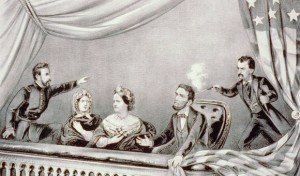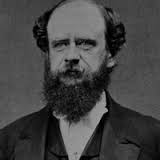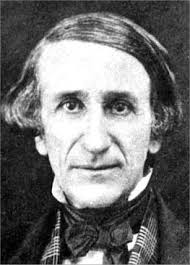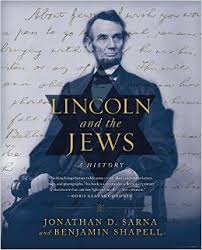 Notes from the Lampert Library
Notes from the Lampert Library
Mary Lincoln must have been pleased that this evening she and her husband would be going to the theater. A successful comedy, Our American Cousin, was playing at Ford’s Theater. Perhaps Abraham would relax for the evening. The war had aged him terribly and he had been having premonitions of his own death.
Although General Robert E. Lee had surrendered to General Ulysses S. Grant at Appomatox on April 9, the war was still being fought in the west where the news had not yet reached the armies. Lincoln was burdened with plans for the peace and bringing the country together.
A night at the theater might lift these burdens at least for an evening. The president took his seat next to Mrs. Lincoln and was thoroughly enjoying the play as he sat, hand in hand, with Mrs. Lincoln. They chatted and laughed. By some reports, Lincoln’s last words to Mary were “there is no place I so much desire to see as Jerusalem”
 At the high point of the play, John Wilkes Booth, an actor whom Lincoln highly admired and had repeated invited to the White House (Booth never accepted the invitations), sneaked into the presidential box and fired point blank into Lincoln’s skull. The loud laughter from the audience covered the gun’s report.
At the high point of the play, John Wilkes Booth, an actor whom Lincoln highly admired and had repeated invited to the White House (Booth never accepted the invitations), sneaked into the presidential box and fired point blank into Lincoln’s skull. The loud laughter from the audience covered the gun’s report.
 It was Good Friday, April 14, 1865. The President had been shot. He died shortly after 7:00 on the morning of April 15. One of the physicians at his side was Charles Lieberman, a Jewish surgeon, who assessed the gunshot wound as fatal. Lieberman is even portrayed in the painting The Last Hours of Lincoln.
It was Good Friday, April 14, 1865. The President had been shot. He died shortly after 7:00 on the morning of April 15. One of the physicians at his side was Charles Lieberman, a Jewish surgeon, who assessed the gunshot wound as fatal. Lieberman is even portrayed in the painting The Last Hours of Lincoln.
One hundred and fifty years have passed since the Civil War ended and the battles that threatened to destroy the United States, the world’s largest experiment in democracy, were waged. One hundred and fifty years have passed since Abraham Lincoln became the first president of the United States to be assassinated.
Jews across the country were in synagogues on this Passover Shabbat when they heard the news. Jews for the most part, as least in the North, venerated Lincoln. It is said that congregations rose spontaneously and recited the Mourner’s Kaddish. Letters, eulogies and sermons from prominent rabbis soon followed. (https://www.jewishvirtuallibrary.org/jsource/loc/abe5.html)
In the last few years, along with the commemoration of Civil War Era events, Jewish scholars have looked at the relationship of Lincoln to the growing Jewish population of the United States which had increased from about 3000 in 1809 to 150,000 in 1865, about 125,000 living in the Union states.
It is well documented that Jews fought for both the Union and the Confederacy. It is also distressingly evident that Jews were not universally accepted as shown by the infamous Order Number 11 promulgated by General Grant, expelling Jews from the territory under his command. Pressed by the Jewish community, President Lincoln quickly countermanded the order. In addition, it was Lincoln who allowed the first Jewish chaplain to serve the armed forces.
The latest book to take up the topic of Lincoln and his relationship to Jews is Lincoln and the Jews: A History by Jonathan D. Sarna, professor of American history at Brandeis University, and Benjamin Shapell, founder of the Shapell Manuscript Foundation which collects original documents of world-renowned people and mounts special exhibits.
 Through personal letters the authors show how Lincoln’s benevolent attitude towards Jews developed from his relationships with Jewish acquaintances who became friends. One such person was Abraham Jonas, a fellow Illinois legislator, whom Lincoln called one of his “most valued friends.” Jonas was one of the first to suggest that Lincoln run for the presidency.
Through personal letters the authors show how Lincoln’s benevolent attitude towards Jews developed from his relationships with Jewish acquaintances who became friends. One such person was Abraham Jonas, a fellow Illinois legislator, whom Lincoln called one of his “most valued friends.” Jonas was one of the first to suggest that Lincoln run for the presidency.
This beautifully designed books with many reproductions of letters and photographs has been lauded as “fascinating and comprehensive (Publishers’ Weekly) and “a vivid, fresh perspective on Lincoln’s life and time” (Kirkus). It’s thoroughly documented with expanded notes. Lincoln and the Jews is a pleasure to hold and to read; it’s a must for Lincoln devotees.
 The research is the basis for a traveling exhibition that can be seen through June 7 at the New York Historical Society (http://www.nyhistory.org/exhibitions/lincoln-and-the-jews).
The research is the basis for a traveling exhibition that can be seen through June 7 at the New York Historical Society (http://www.nyhistory.org/exhibitions/lincoln-and-the-jews).
In addition, The New York Times recently featured the exhibit in a detailed article in the Arts Section. (http://www.nytimes.com/2015/03/20/arts/design/lincoln-and-the-jews-explores-bonds-with-a-nations-growing-minority.html)
Lincoln and the Jews is available in the Lampert Library as is Sarna’s When Grant Expelled the Jews. Other books, for both children and adults, about Jews and the Civil War can be found by checking the card catalog.
- Is It Passover Yet? - Thu, Apr 18, 2024
- MESH Report April 9, 2024 - Thu, Apr 11, 2024
- Guess Who? - Wed, Mar 13, 2024
